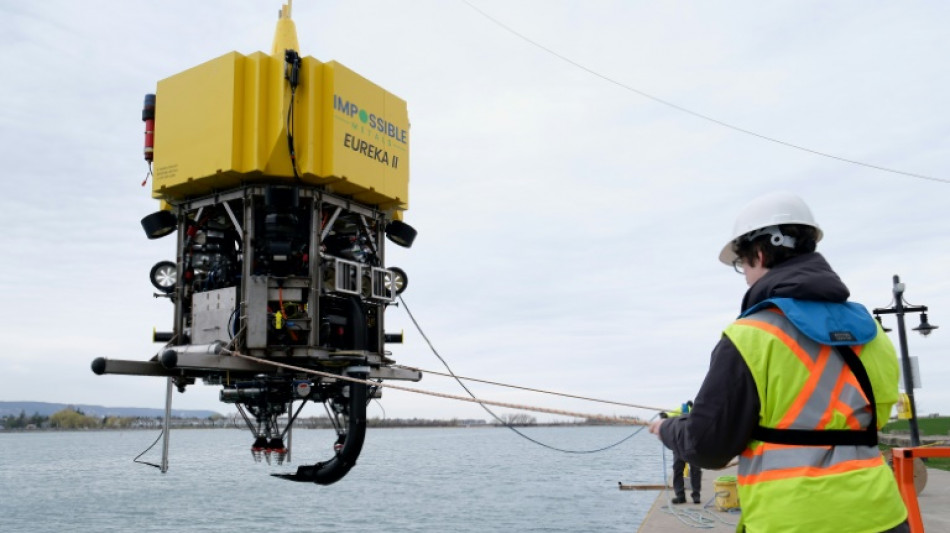
-
 Real Madrid thrash Kairat with Mbappe hat-trick
Real Madrid thrash Kairat with Mbappe hat-trick
-
Deepti, Amanjot fire as India crush Sri Lanka in Women’s World Cup opener
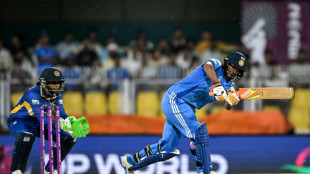
-
 Deadlines loom for Milan's Olympic village as Winter Games near
Deadlines loom for Milan's Olympic village as Winter Games near
-
At least 5 dead after strong quake in central Philippines

-
 Estonia PM says Russia incursions aim to distract EU from Ukraine: AFP interview
Estonia PM says Russia incursions aim to distract EU from Ukraine: AFP interview
-
DR Congo ex-president Kabila sentenced to death in absentia for 'treason'
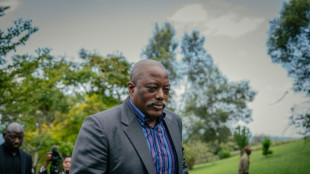
-
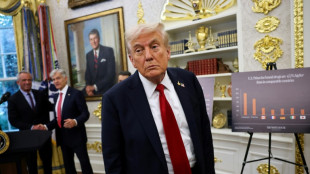 Trump says US government will 'probably' shut down
Trump says US government will 'probably' shut down
-
Board of Spain's Sabadell bank rejects improved BBVA takeover bid

-
 Howe blasts irrelevant criticism of Woltemade after 'idiot' jibe
Howe blasts irrelevant criticism of Woltemade after 'idiot' jibe
-
Erasmus ready for 'high stakes' Argentina clash in Rugby Championship finale
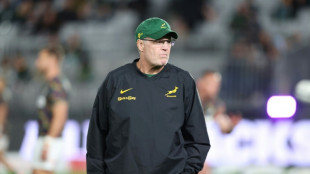
-
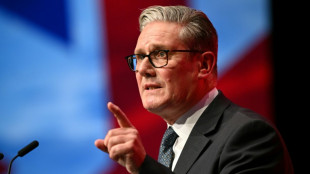 Starmer vows to fight for Britain's 'soul', thwart far right
Starmer vows to fight for Britain's 'soul', thwart far right
-
Strong quake causes damage, panic in central Philippine island

-
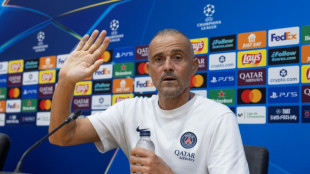 PSG must keep Barca's 'Harry Potter' Pedri at bay: Luis Enrique
PSG must keep Barca's 'Harry Potter' Pedri at bay: Luis Enrique
-
'I couldn't reach them': Afghans abroad despair at blackout

-
 US stocks slip as government shutdown looms
US stocks slip as government shutdown looms
-
Key warns England not to be 'stupid' on Ashes tour

-
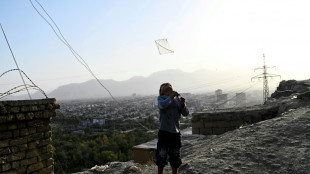 UN calls for Taliban to restore internet as Afghanistan goes dark
UN calls for Taliban to restore internet as Afghanistan goes dark
-
Saliba says he was focused on staying at Arsenal after signing new deal

-
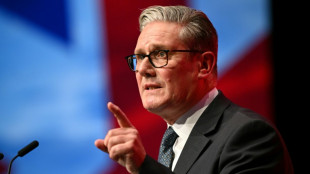 Starmer vows to fight for 'decent' Britain, as he battles Farage
Starmer vows to fight for 'decent' Britain, as he battles Farage
-
US on brink of government shutdown with funding talks stalled

-
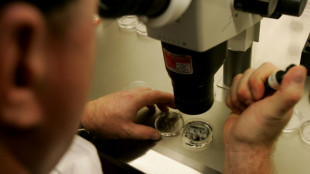 Human skin cells turned into fertilisable eggs for first time
Human skin cells turned into fertilisable eggs for first time
-
UN warns Myanmar conflict blocking Rohingya return

-
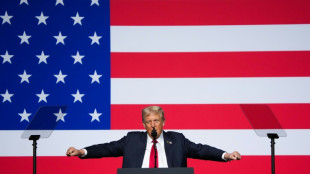 Trump tells generals US faces 'war from within'
Trump tells generals US faces 'war from within'
-
Williams absence 'could help us', say Dortmund as Guirassy back against Athletic

-
 Louis Vuitton unveils ethereal collection at Paris Fashion week
Louis Vuitton unveils ethereal collection at Paris Fashion week
-
ECB chief says eurozone weathering Trump tariff storm
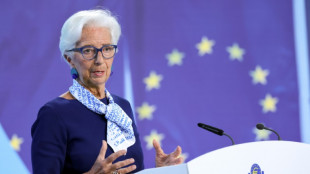
-
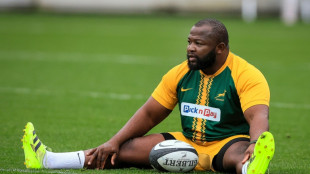 Nche starts for South Africa as they eye Rugby Championship title against Argentina
Nche starts for South Africa as they eye Rugby Championship title against Argentina
-
AI tool helps researchers treat child epilepsy
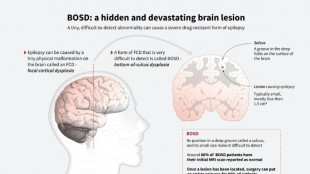
-
 Brigitte Bardot slams Saint-Tropez after decades in jet-set port
Brigitte Bardot slams Saint-Tropez after decades in jet-set port
-
Pentagon chief tells US military leaders to fix 'decades of decay'
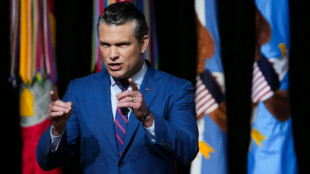
-
 Spotify founder Daniel Ek to give up CEO role
Spotify founder Daniel Ek to give up CEO role
-
Barca star Yamal must 'work hard' to reach top level, says Flick
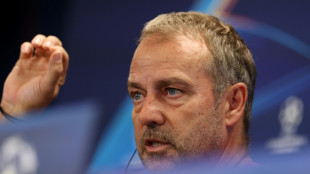
-
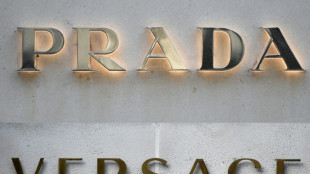 EU green lights Prada's bid for Versace
EU green lights Prada's bid for Versace
-
New youth-led protests in Madagascar despite government's dismissal
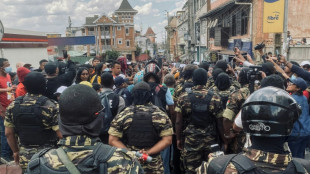
-
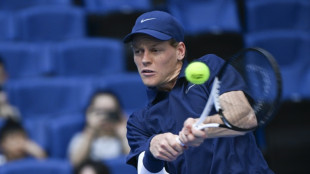 Sinner to face teenager Tien in Beijing final as Gauff battles on
Sinner to face teenager Tien in Beijing final as Gauff battles on
-
Gold hits record, dollar drops as US shutdown looms

-
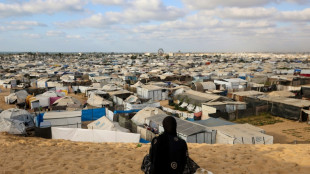 Hamas reviewing Trump's Gaza plan
Hamas reviewing Trump's Gaza plan
-
Alcaraz beats Fritz in Tokyo for eighth title of season
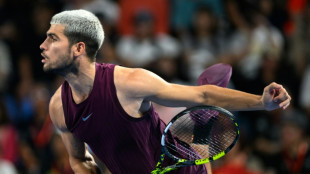
-
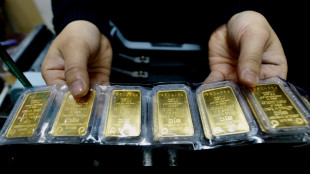 Vietnam jails former officials over gold bar graft: state media
Vietnam jails former officials over gold bar graft: state media
-
German far-right MP's ex aide jailed for spying for China

-
 Who will take 30,000 asylum seekers? EU solidarity faces big test
Who will take 30,000 asylum seekers? EU solidarity faces big test
-
PSG's Kvaratskhelia to miss Barcelona Champions League trip

-
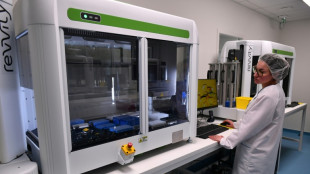 Endometriosis test backed by French government under scrutiny
Endometriosis test backed by French government under scrutiny
-
Madagascar protesters undeterred despite sacking of government
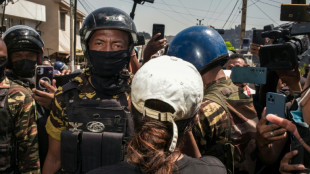
-
 Saliba signs new long-term deal at Arsenal
Saliba signs new long-term deal at Arsenal
-
Sinner powers into Beijing final as Gauff survives Bencic test
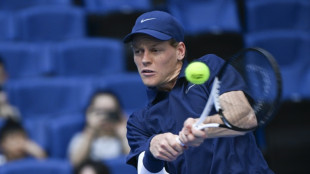
-
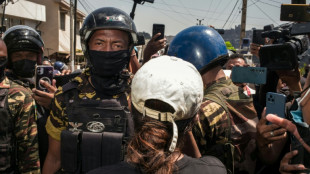 Madagascar protesters mobilise despite firing of government
Madagascar protesters mobilise despite firing of government
-
Gauff calls for shorter tennis seasons as 'impossible' to play more

-
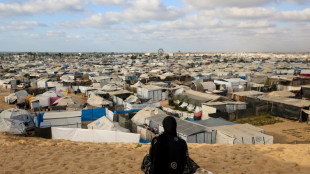 Hamas yet to respond on Trump's Gaza plan
Hamas yet to respond on Trump's Gaza plan
-
Long-lasting Typhoon Bualoi devastates Vietnam, killing 19
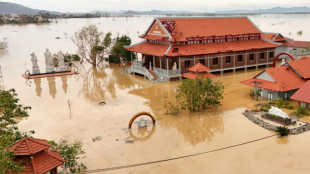

In Canada lake, robot learns to mine without disrupting marine life
Three robotic arms extended under the water in a Canadian lake, delicately selecting pebbles from the bed, before storing them back inside the machine.
The exercise was part of a series of tests the robot was undergoing before planned deployment in the ocean, where its operators hope the machine can transform the search for the world's most sought-after metals.
The robot was made by Impossible Metals, a company founded in California in 2020, which says it is trying to develop technology that allows the seabed to be harvested with limited ecological disruption.
Conventional underwater harvesting involves scooping up huge amounts of material in search of potato-sized things called poly-metallic nodules.
These nodules contain nickel, copper, cobalt, or other metals needed for electric vehicle batteries, among other key products.
Impossible Metals' co-founder Jason Gillham told AFP his company's robot looks for the nodules "in a selective way."
The prototype, being tested in the province of Ontario, remains stationary in the water, hovering over the lake bottom.
In a lab, company staff monitor the yellow robot on screens, using what looks like a video game console to direct its movements.
Using lights, cameras and artificial intelligence, the robot tries to identify the sought-after nodules while leaving aquatic life -- such as octopuses' eggs, coral, or sponges -- undisturbed.
- 'A bit like bulldozers' -
In a first for the nascent sector, Impossible Metals has requested a permit from US President Donald Trump to use its robot in American waters around Samoa, in the Pacific.
The company is hoping that its promise of limited ecological disruption will give it added appeal.
Competitors, like The Metals Company, use giant machines that roll along the seabed and suck up the nodules, a highly controversial technique.
Douglas McCauley, a marine biologist at the University of California, Santa Barbara, told AFP this method scoops up ocean floor using collectors or excavators, "a bit like bulldozers," he explained.
Everything is then brought up to ships, where the nodules are separated from waste, which is tossed back into the ocean.
This creates large plumes of sediment and toxins with a multitude of potential impacts, he said.
A less invasive approach, like that advocated by Impossible Metals, would reduce the risk of environmental damage, McCauley explained.
But he noted lighter-touch harvesting is not without risk.
The nodules themselves also harbor living organisms, and removing them even with a selective technique, involves destroying the habitat, he said.
Impossible Metals admits its technology cannot detect microscopic life, but the company claims to have a policy of leaving 60 percent of the nodules untouched.
McCauley is unconvinced, explaining "ecosystems in the deep ocean are especially fragile and sensitive."
"Life down there moves very slowly, so they reproduce very slowly, they grow very slowly."
Duncan Currie of the Deep Sea Conservation Coalition said it was impossible to assess the impact of any deep sea harvesting.
"We don't know enough yet either in terms of the biodiversity and the ecosystem down there," he told AFP.
According to the international scientific initiative Ocean Census, only 250,000 species are known, out of the two million that are estimated to populate the oceans.
- High demand -
Mining is "always going to have some impact," said Impossible Metals chief executive and co-founder Oliver Gunasekara, who has spent most of his career in the semiconductor field.
But, he added, "we need a lot more critical minerals, as we want to electrify everything."
Illustrating the global rush toward underwater mining, Impossible Metals has raised US$15 million from investors to build and test a first series of its Eureka 3 robot in 2026.
The commercial version will be the size of a shipping container and will expand from three to 16 arms, and its battery will grow from 14 to nearly 200 kilowatt-hours.
The robot will be fully autonomous and self-propel, without cables or tethers to the surface, and be equipped with sensors.
While awaiting the US green light, the company hopes to finalize its technology within two to three years, conduct ocean tests, build a fleet, and operate through partnerships elsewhere in the world.
C.Stoecklin--VB
